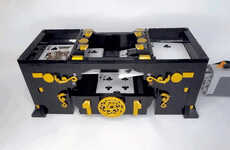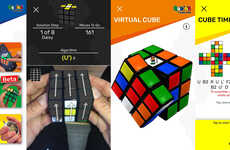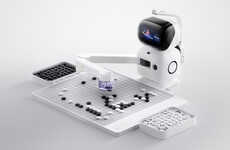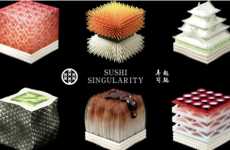
The Universal LEGO Sorter Uses AI to Sort an Item Every Two Seconds
Daniel Johnson — December 10, 2019 — Tech
Daniel West, a YouTube creator, created the universal LEGO sorter which uses an AI neural network to categorize individual pieces of LEGO. The universal LEGO sorter is comprised of 10,000 Lego bricks and the system took approximately two years to create.
The system operates with six LEGO motors, as well as nine servo motors, that power conveyor belts that are able to move individual pieces. Video footage is then sent to a Rasberry Pi Ai system that processes the data form the video camera and then allocate where each piece should go. The system is able to sort one brick every two seconds, making it much more efficient than sorting items by hand.
Image Credit: Daniel West
The system operates with six LEGO motors, as well as nine servo motors, that power conveyor belts that are able to move individual pieces. Video footage is then sent to a Rasberry Pi Ai system that processes the data form the video camera and then allocate where each piece should go. The system is able to sort one brick every two seconds, making it much more efficient than sorting items by hand.
Image Credit: Daniel West
Trend Themes
1. AI Toy Sorting Machines - Disruptive innovation opportunity: Develop AI-powered sorting machines for other types of toys and collectibles.
2. Universal LEGO Sorter - Disruptive innovation opportunity: Create a customizable Lego sorter for hobbyists and collectors.
3. AI Neural Networks - Disruptive innovation opportunity: Apply AI neural networks to improve efficiency in other manual sorting processes.
Industry Implications
1. Robotics - Disruptive innovation opportunity: Build robotic systems for automated sorting in various industries, such as manufacturing and logistics.
2. Toy Manufacturing - Disruptive innovation opportunity: Partner with toy manufacturers to integrate AI sorting technology into their production processes.
3. Artificial Intelligence - Disruptive innovation opportunity: Develop AI algorithms and systems for efficient sorting and categorization in different industries, such as retail and inventory management.
4.1
Score
Popularity
Activity
Freshness























